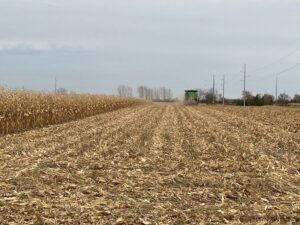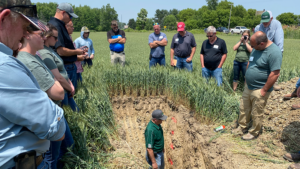Foreign farm workers
CONVERSATIONS WITH BUSINESS EXPERTS

(J.M.) WHO IS ELIGIBLE TO HIRE FOREIGN WORKERS IN CANADA?
(J.F.) Most agricultural businesses fall under the agricultural stream of the Temporary Foreign Worker (TFW) Program. This program allows farm employers to hire foreign workers when Canadians and permanent residents are unavailable. To qualify to hire under the TFW program, employers must apply for a Labour Market Impact Assessment (LMIA) that will determine if there are no other Canadians available to fill the positions.
WHAT IS A LABOUR MARKET IMPACT ASSESSMENT?
As a licensed immigration consultant, I work with farms to apply for an LMIA, the government document issued by Service Canada that allows Canadian employers to hire temporary foreign workers. The LMIA application requires employers to prove there are no Canadian applicants for the job through advertising. Throughout this process, the employer must also prove business legitimacy, provide proof of housing for workers hired (and inspected by the employer’s local public health) and provide a job description. To qualify, employers need to provide year-round, full-time employment (minimum 30 hours per week) and housing. Once the LMIA is approved, workers can apply for their work permit.
The LMIA application process can be complex, and that is where I can help farmers who may not know where to start. I support farmers by organizing paperwork, understanding their employer obligations, and submitting and monitoring LMIA applications. In many cases, I’m a consultant farmers can call on to learn more about the program and processes and weigh the pros and cons of hiring foreign labour. I bring eight years of experience hiring foreign labour to support my family’s dairy farm and help farm employers decide if they are ready to invest in applying for and hiring foreign workers.
WHAT ARE THE RESPONSIBILITIES OF A FOREIGN LABOUR EMPLOYER?
Employers are responsible for their LMIA application and supporting documentation, like business legitimacy, housing inspections, etc. Once approved and employment has been accepted, the workers coming to Canada are responsible for securing their visas and any related processing fees. Some countries require extra procedures, like medical exams, and that’s also the worker’s responsibility.
Employers are required to provide the flight to Canada, transportation from the airport to your farm, housing, and the return flight home. Foreign workers must have health insurance and be covered by WSIB. They are eligible for OHIP, but it can take a few weeks to effect. Employers are responsible for covering the cost of health care and taking employees to health facilities when necessary, so I always recommend employers purchase private health insurance for workers when they arrive as a bridge until OHIP kicks in.
WHAT REGULATIONS GOVERN THE TEMPORARY FOREIGN WORKER PROGRAM?
Employment and Social Development Canada (ESDC) assesses LMIA to determine how these workers would impact the Canadian labour market.
Compliance is governed by ESDC. Any foreign worker concerns or complaints are filed with ESDC, and employers are subject to random inspections under this regulatory body. Inspections could include reviewing paperwork, ensuring fair working conditions and hours, and workers being paid. ESDC also sets wage guidelines for employers paying foreign workers.
Under this program, foreign workers have a maximum duration of two years, and all activities must relate to on-farm primary agriculture. This differs from the Seasonal Agricultural Worker Program, which provides employment for up to eight months of the year. In Ontario, foreign workers are also covered and protected by provincial governing laws.
ARE MORE FARMS HIRING FOREIGN LABOUR?
Farms with consistent labour requirements, like dairy, poultry, and swine, are increasingly turning to the TFW program to solve labour shortages. I’ve seen a major uptake in interest from employers in hiring foreign workers because they are struggling to find reliable Canadian workers willing to put in the long hours necessary to keep a farm operating.
Many grain farmers I’ve talked to are on the fence about hiring foreign workers. The seasonality, higher skill requirements to operate machinery, and language barriers can be constraints for grain farms. Grain farmers looking to hire workers also tend to do a lot of custom work, which means the farm no longer qualifies for the agricultural stream of the program. Once foreign workers start working for another farm and are paid by another business entity (via their farm employer), they become a contractor under provincial labour laws. There is a lot of grey area in the TFW program when it comes to the types of work required on a grain farm. I advise grain farmers interested in the program to fully understand the requirements and carefully weigh the pros and cons. •










